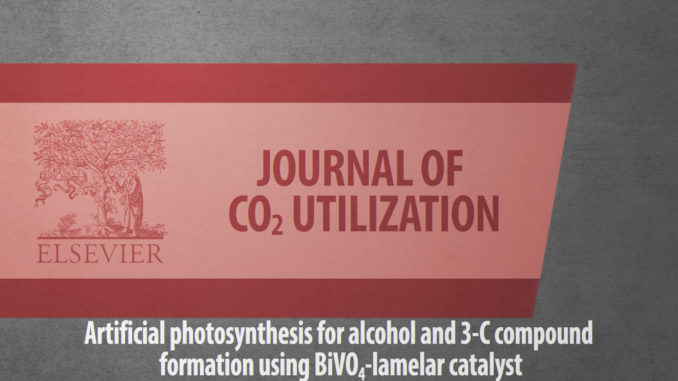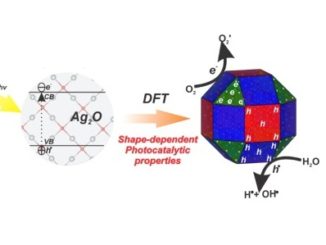
Artificial photosynthesis for alcohol and 3-C compound formation using BiVO4-lamelar catalyst
Abstract: The high levels of atmospheric CO2 transformed this compound in a preoccupant pollutant. However, a wide range of semiconductors, including bismuth vanadate (BiVO4), can be applied for CO2 reduction aiming generation of fuels. This work reports the optimization of the BiVO4 layer synthesis by microwave system using factorial experimental design, where the variables time (5 to 15 min) and temperature (120 to 160 °C) were studied. For evaluation purposes, the materials synthetized were applied in photocatalytic reduction of CO2. All the BiVO4 materials analyzed promoted the formation of methanol. The best condition was obtained under the material synthesized at 160 °C with 15 min of reaction, where 1.5 mmol L−1 gcat−1 of methanol was produced after 120 min of photocatalysis. For the first time, acetone formation was observed in this kind of material. The best condition for acetone production was acquire with the material prepared at 140 °C with 10 min of synthesis, where 0.030 mmol L−1 gcat−1 was generated after 240 min of CO2 reduction. Differences in methanol concentration obtained among the samples were probably related to crystallographic patterns of the material, once the presence of Bi2O3 or other BiVO4 crystallographic species may affect the efficiency of the material. The results obtained in this work show that the use of BiVO4 layer semiconductor prepared by microwave system for CO2 reduction leads to the generation of high amounts of methanol under just UV–vis light incidence, aside from promoting the production of acetone.
Author(s): Corradini, P.G.; Brito, J.F.; Zanoni, M.V.B.; Mascaro, L.H.
Journal of CO2 Utilization
Published: February 2020, Volume 36, Pages 187-195
DOI: https://doi.org/10.1016/j.jcou.2019.10.020
CDMF
The CDMF, hosted at the Federal University of São Carlos (UFSCar), is one of the Research, Innovation and Dissemination Centers (RIDC) supported by the São Paulo State Research Support Foundation (Fapesp), and also receives investment from the National Council Scientific and Technological Development (CNPq), from the National Institute of Science and Technology of Materials in Nanotechnology (INCTMN).




